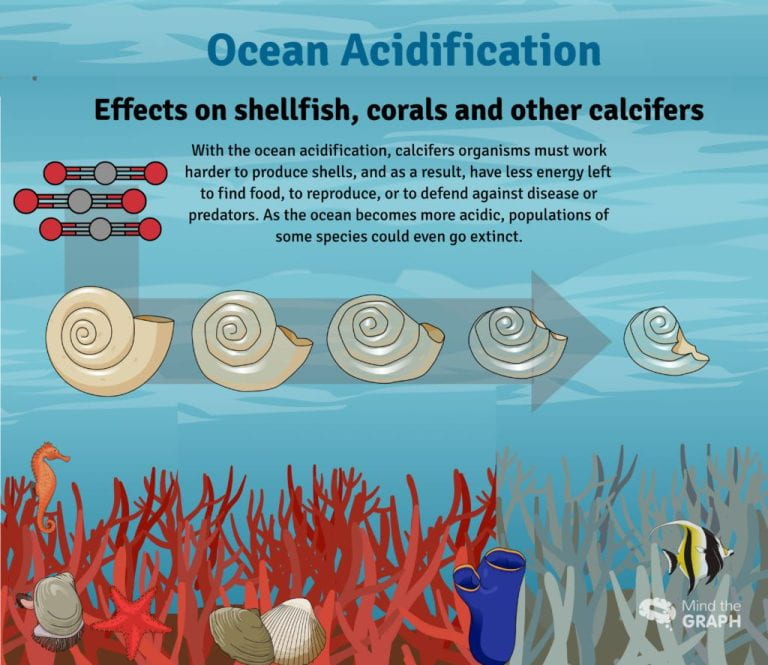Ocean Acidification: The New Threat on the Horizon
Ocean acidification is the continuous decrease in the pH of the Earth’s oceans, directly caused by their uptake of carbon dioxide from the atmosphere. Where is the increased concentration of carbon dioxide in the atmosphere coming from? Climate change, of course! And who is responsible, you say? Us, duh! Who else cares about this planet more than us? Between 1751 and 1994, the pH of the ocean’s surface was estimated to have decreased from 8.179 to 8.104 (i.e., a change of -0.075, which might seem rather inconsequential but is profound indeed).
Right now, the average pH of the oceans are slightly basic (~8.1), but experts are concerned that the pH may drop even lower in coming years (acidifying), thereby harming biodiversity and marine life. As a matter of fact, the ability of some fish (e.g., clownfish) to detect nearby predators is lowered in more acidic waters. Studies have revealed that lowered pH levels also affect the ability of some clownfish to locate suitable habitats. When these organisms are at risk of going extinct, the entire food web may also be at huge risk as a result; they are essentially keystone species that form the “heart” of the food web and the environment. It’s also wreaking havoc on the habitats where most of these species live like the coral reefs.
While most species will be harmed by ocean acidification, on the plus side, algae and seagrasses may benefit from higher carbon dioxide levels in the ocean, since they require carbon dioxide for photosynthesis.
Viewing this issue from a representational lens, many people overlook the importance and prevalence of this issue. As mentioned before, most marine species are being harmed from acidification. Let me reframe the issue from our perspective: imagine yourself living in a world with polluted air — so polluted that you cough repeatedly every time you inhale and exhale. How would that sound to you? … Yeah, I thought so. The next time you consider the severity of climate change, imagine yourself in the place of the swarms of fish teeming in the ocean and how you would feel living in a toxic environment — and moreover, when you’re not even contributing to the cause (i.e., fish aren’t even directly responsible for climate change, so why should they suffer?).

Enjoy Reading This Article?
Here are some more articles you might like to read next: